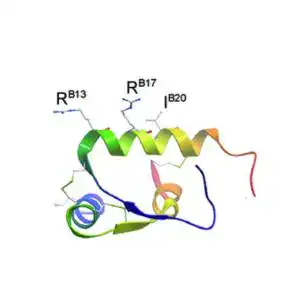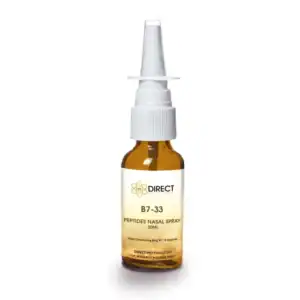Buy B7-33 Peptide
Buy B7-33 , a novel peptide derived from relaxin, known for its potential therapeutic benefits. It offers anti-inflammatory effects, helps reduce fibrosis, and supports cardiovascular health, making it a valuable candidate for advanced medical applications.
Shop our Full Range of B7-33 Peptides
-
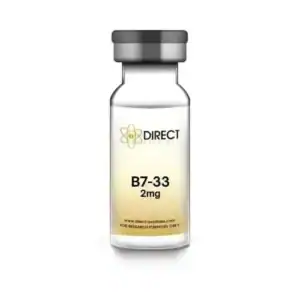
B7-33 Peptide Vial
£16.78 – £57.11Price range: £16.78 through £57.11 This product has multiple variants. The options may be chosen on the product page -
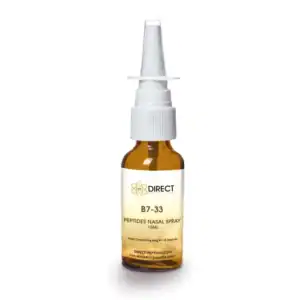
B7-33 Nasal Spray
£40.10 – £75.20Price range: £40.10 through £75.20 This product has multiple variants. The options may be chosen on the product page -
Sale!
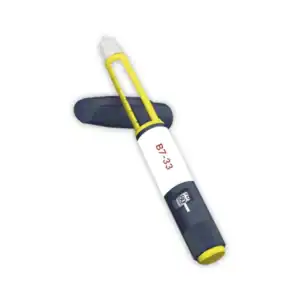
B7-33 2mg Pre-Mixed Peptide
£22.55 – £60.88Price range: £22.55 through £60.88 This product has multiple variants. The options may be chosen on the product page
What Is B7-33?
B7-33 is a synthetic peptide based on relaxin, a natural hormone with cardioprotective and anti-fibrotic properties. Made up of 33 amino acids, it is designed to specifically activate the RXFP1 receptor, which is key to relaxin’s beneficial effects. Compared to the full relaxin hormone, B7-33 is smaller, more stable, and more focused in its function, making it ideal for research.
Researchers are particularly interested in B7-33 for its ability to reduce fibrosis, relax blood vessels, and regulate inflammation. This makes it a promising tool for studying potential treatments for conditions like cardiovascular diseases and fibrotic disorders. Its targeted action also offers the possibility of fewer side effects compared to more general treatments.
B7-33 Mechanism Of Action
B7-33 works by mimicking a specific part of the human relaxin-2 hormone, which has anti-fibrotic and vasorelaxant properties. Unlike the full relaxin-2 hormone, B7-33 is a smaller, single-chain peptide designed to specifically activate the RXFP1 receptor.
When it binds to this receptor, it triggers signals that reduce collagen production, decrease fibrosis, and relax blood vessels. This targeted approach helps control inflammation and protects tissues from fibrotic damage. By focusing only on the RXFP1 receptor, B7-33 avoids unwanted side effects, making it a highly efficient and promising option for therapeutic use.
Source: Chemical Science
Structure of B7-33
Sequence: VIKLSGRELVRAQIAISGMSTWSKRSL
Molecular Formula: C131H228N40O37S
Molecular Weight: 2987,75 g/mol
What Are The Research Benefits of B7-33
Vasoprotection: Research has shown it has promising vasoprotective qualities by reducing inflammation and fibrosis, as highlighted in recent studies [1]. Studies highlight its ability to improve endothelial function and vascular flexibility, which could help with conditions like atherosclerosis and hypertension. These findings suggest it may play a key role in supporting overall vascular health*.
*The term “vascular” relates to blood vessels, including arteries, veins, and capillaries, which are essential for transporting oxygen, nutrients, and waste throughout the body. A healthy vascular system is crucial for overall function, while disorders like atherosclerosis or blood clots can cause serious health issues.
Treatment of Fibrosis: The peptide targets fibrosis by activating the RXFP1 receptor, effectively reducing fibroblast activation and collagen production to prevent tissue stiffening and scarring. Its anti-inflammatory properties further slow the progression of fibrosis, positioning it as a promising therapeutic option for fibrotic diseases. Animal studies have shown that inhaled B7-33 significantly alleviates bleomycin-induced pulmonary fibrosis in mice by decreasing collagen levels and enhancing lung function. These findings underscore its potential as a viable treatment for fibrotic conditions [2].
Reduces Inflammation: It works by targeting immune and inflammatory pathways through activation of the RXFP1 receptor. This triggers key signalling pathways, including cAMP-PKA and PI3K-Akt, which together drive its anti-inflammatory, anti-fibrotic, and tissue-repairing effects. The cAMP-PKA pathway helps by reducing pro-inflammatory cytokines, lowering oxidative stress, and regulating gene activity to control excessive immune responses and protect tissues from damage. Meanwhile, the PI3K-Akt pathway supports cell survival and tissue repair, making it effective for conditions like fibrosis, lung inflammation and cardiovascular diseases that involve chronic inflammation. This combination of effects highlights the peptide’s potential as a targeted therapy that not only manages inflammation but also promotes tissue regeneration [3].
Improves Cardiac Function: Research suggests this peptide could have therapeutic benefits for heart health and chronic diseases. It has strong anti-fibrotic and anti-inflammatory properties, which help reduce cardiac fibrosis and improve heart function. Studies have shown it to activate the cAMP and PERK pathways, which play a key role in minimizing excessive scar tissue and enhancing vascular endothelial growth factor (VEGF) activity. This supports blood vessel growth and tissue repair.
Studies have highlighted its acute beneficial vascular effects, including its ability to alleviate endothelial dysfunction and the regulation of enzyme matrix metalloproteinase (MMP)-2. These properties are vital in preventing structural abnormalities and excessive scar formation associated with heart damage. Laboratory studies using animal models, such as rat mesenteric arteries, have demonstrated B7-33’s ability to enhance blood supply, lower heart rate, and protect against the progression of conditions like acute heart failure and kidney disease [4].
Pre-eclampsia: As a simplified single-chain peptide derived from H2 relaxin, it shows promise as a cost-effective treatment for pre-eclampsia (PreE), a serious pregnancy complication linked to hypertension and angiogenic imbalance. Unlike H2 relaxin, B7-33’s 27 amino acid structure is easier to produce while maintaining efficacy. Studies demonstrate its ability to reduce anti-angiogenic factors (sFlt-1, sEng) and promote angiogenic balance (VEGF) in cytotrophoblast cells under hyperglycemic conditions, mimicking PreE. Additionally, B7-33 supports key cellular pathways (mTOR, pAKT) critical for placental function. These findings highlight its therapeutic potential, calling for further research on its safety and long-term effects [5].
Application in Implant Coatings: Research shows that incorporating the peptide into biodegradable polymer coatings like PLGA can significantly reduce the foreign body response (FBR) in implantable medical devices. Using the peptide’s antifibrotic properties, this method helps lower inflammation and reduces collagen capsule formation by nearly 50% within six weeks. This improvement enhances the long-term performance of implants, biosensors, and cell therapies [6].
Buy B7-33 Peptide for research purposes online today!
Buy B7-33 Pre-Mixed Peptide Pen
Buy B7-33 pre-mixed 2mg pen for in vivo laboratory purposes. It simplifies peptide administration for research by offering a ready-to-use, precise, and consistent dosing solution. Its compact, user-friendly design is ideal for controlled laboratory studies.
Pre-mixed cartridges include your chosen peptide vial, bacteriostatic water, and pen needle tips, with the option of a full kit featuring a pen and carry case. Single cartridges (1, 2, or 3) come with needle tips but no kit.
Save 10% when purchasing 3 cartridges.
Buy B7-33 Peptide Nasal Spray
Buy B7-33 peptide nasal spray for laboratory use. It is an innovative solution designed for research purposes to deliver peptides efficiently through the nasal route. Available in 15ml and 30ml bottles, it simplifies administration without the need for injections, offering convenience and ease of use.
This precise formulation ensures consistent dosing, promoting accuracy in controlled studies. The spray is particularly valued in research settings where non-invasive delivery methods are essential, making it a versatile option for peptide administration.
Frequently Asked Questions (FAQs) about B7-33
What Is The Difference Between Relaxin 2 Hormone and B7-33?
Relaxin-2 and B7-33 both activate the RXFP1 receptor, but they differ in structure and function. Relaxin-2 is a natural peptide hormone made up of two chains (A and B) connected by disulfide bonds. It has a wide range of roles, including regulating pregnancy, cardiovascular function, and collagen remodeling.
In contrast, B7-33 is a single-chain mimetic peptide derived from a small part of the Relaxin-2 B chain. Unlike the more complex Relaxin-2, this peptide is specifically designed to activate the RXFP1 receptor with a targeted action. This focused design reduces off-target effects and makes it a simpler, potentially more affordable option for treating fibrotic and inflammatory diseases compared to the native Relaxin-2 hormone.
Is B7-33 legal?
Use of these products are strictly for research as they are not yet approved for human consumption by regulatory authorities like the United States Food and Drug Administration (FDA). It cannot be marketed until clinical trials confirm its safety, efficacy, and benefit-risk profile. Regulatory approval requires extensive testing to ensure public health standards are met.
What is Fibrosis?
Fibrosis is a condition where too much connective tissue, mainly collagen, builds up due to chronic injury or inflammation. It can happen in different organs and tissues, causing scarring (unorganized tissue regneration) and stiffening in the affected area. Over time, this can interfere with how the organ works, leading to diseases like pulmonary fibrosis, liver cirrhosis, or myocardial fibrosis. Fibrosis occurs when there’s an imbalance between the production and breakdown of extracellular matrix proteins, often caused by prolonged activation of certain pathways. Understanding these pathways is key to developing treatments to prevent or reverse fibrotic damage.
Does B7-33 have any side effects?
Early studies suggest that it is generally well-tolerated, but some patients may experience mild or transient adverse effects, such as localised injection site reactions, minor fatigue, or headache. However, extensive clinical studies are required to better understand the potential risks and ensure its safety profile, particularly for long-term use. Researchers are closely monitoring any rare or severe side effects that could arise, aiming to balance its efficacy with patient safety.
Buy B7-33 Peptide Vial for research use from Direct Peptides. Available in 2mg and 6mg glass vials as a lyophilized (freeze-dried) powder. Please note, the peptide requires reconstitution with bacteriostatic water prior to use.
Summary of Research Applications
- Antifibrotic properties.
- Anti-inflammatory benefits.
- Cardioprotective.
- Potential analgesic effects.
- Improves circulation.
- Helps lower blood pressure.
- Potential treatment for lung diseases.
- Coating for transplant material.
B7-33 Peptide Quality Assured
Buy B7-33 peptide (99% purity) from Direct Peptides for research on cellular mechanisms. It supports studies in muscle regeneration, wound healing, anti-inflammatory effects, collagen production, skin rejuvenation, and neurological disorders.
Direct Peptides ensures exceptional purity and reliability by independently testing every batch of peptides. With fast worldwide shipping, we deliver research chemicals promptly and securely to support your scientific needs.
References For Further Reading
[1] Fariha Alam, Tracey A Gaspari, Barbara K Kemp-Harper, Edward Low, Aaron Aw, et al (2023) The single-chain relaxin mimetic, B7-33, maintains the cardioprotective effects of relaxin and more rapidly reduces left ventricular fibrosis compared to perindopril in an experimental model of cardiomyopathy – Biomedicine & Pharmacotherapy, 2023 Apr, Volume 160, Page 114370.
[2] Yuhua Liu, Shaofang Wang, Xueqi Gong, Yingshuo Wang, and Tonghui Xu (2021) Inhaled B7 alleviates bleomycin-induced pulmonary fibrosis in mice – Bioorganic & Medicinal Chemistry, 2021 Nov 15, Volume 50, Page 116482.
[3] Mohammed Akhter Hossain, Martina Kocan, Song T Yao, Simon G Royce, et al (2016) A single-chain derivative of the relaxin hormone is a functionally selective agonist of the G protein-coupled receptor, RXFP1 – Chemical Science, 2016 Jun 1, Volume 7 (Issue 6)3805-3819.
[4] Teja Devarakonda, Adolfo G Mauro, Geronimo Guzman, Sahak Hovsepian, et al (2020) B7‐33, a Functionally Selective Relaxin Receptor 1 Agonist, Attenuates Myocardial Infarction–Related Adverse Cardiac Remodeling in Mice – Journal of the American Heart Association, 2020 Apr 16, Volume 9 (Issue 8), Page e015748.
[5] Mohammad N. Uddin, Syeda H. Afroze, Ahmed F. Pantho, Mohammed A. Hossain, et al (2017) 818: A single-chain derivative of the relaxin hormone (b7-33) protects cytotrophoblasts from hyperglycemia-induced preeclampsia phenotype and induces the survival pathway – American Journal of Obstetrics and Gynecology, Volume 216, Issue 1, Supplement, January 2017, Page S503.
[6] Nicholas G Welch, Shayanti Mukherjee, Mohammed A Hossain, Praveen Praveen, et al (2019) Coatings Releasing the Relaxin Peptide Analogue B7-33 Reduce Fibrotic Encapsulation – ACS Applied Materials & Interfaces, 2019 Dec 11, Volume 11 (Issue 49), Pages 45511-45519.
Why Choose Direct Peptides ?
Buy B7-33 today from Direct Peptides, your trusted source for high-quality peptides. We offer a range of formulations, including 2mg and 6mg vials, nasal sprays in 15ml and 30ml bottles, and 2mg pre-mixed pens. Designed to meet diverse research needs, we ensure researchers have the precise formulations for their projects.
ALL CONTENT AND PRODUCT INFORMATION AVAILABLE ON THIS WEBSITE IS FOR EDUCATIONAL PURPOSES ONLY.
DISCLAIMER: These products are intended solely as a research chemical only. This classification allows for their use only for research development and laboratory studies. The information available on our Direct Peptides website: https://direct-peptides.com is provided for educational purposes only. These products are not for human or animal use or consumption in any manner. Handling of these products should be limited to suitably qualified professionals. They are not to be classified as a drug, food, cosmetic, or medicinal product and must not be mislabelled or used as such.
Related Posts
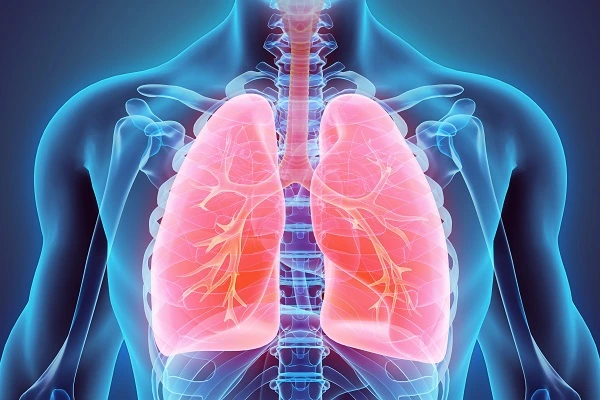
What Are the B7-33 Peptide Benefits for Lungs?
This blog explores the potential of B7-33 peptide for improving lung health. It details research on the peptide's ability to reduce inflammation, prevent tissue damage, and aid regeneration in asthma, COPD, and fibrosis. The post also compares B7-33’s immune-modulating effects with VIP peptide’s bronchodilation properties.
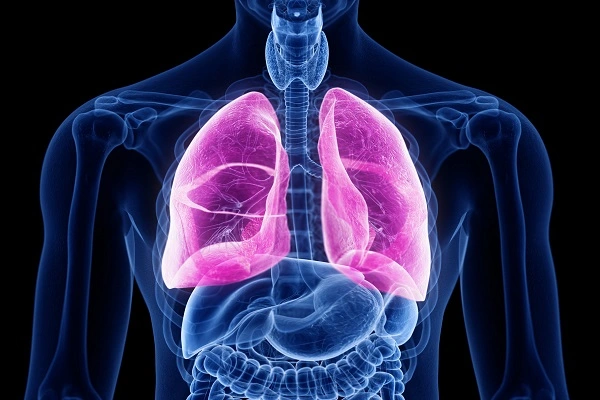
What Are the Effects of VIP Peptide on Pulmonary Health?
This article explores Vasoactive Intestinal Peptide (VIP) as a potential therapy for chronic lung diseases like asthma, COPD, and pulmonary fibrosis. It details how VIP reduces inflammation, modulates immune responses, and aids bronchodilation. Additionally, it highlights complementary peptides, including Thymalin and Thymosin Beta-4, for tissue repair and enhanced pulmonary health.
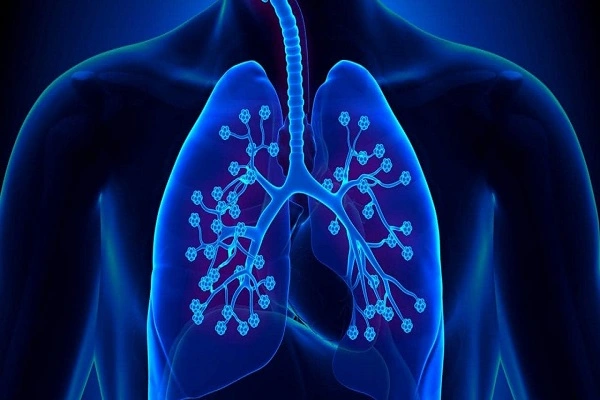
Is Thymosin Alpha-1 the Key to Managing Cystic Fibrosis Symptoms?
This article explores Thymosin Alpha-1 (TA1) peptide as a potential treatment for Cystic Fibrosis. It details how TA1 modulates the immune system and reduces inflammation to slow lung deterioration. The post also highlights complementary peptides, like B7-33 and VIP, offering new hope for improving respiratory health in CF research.

